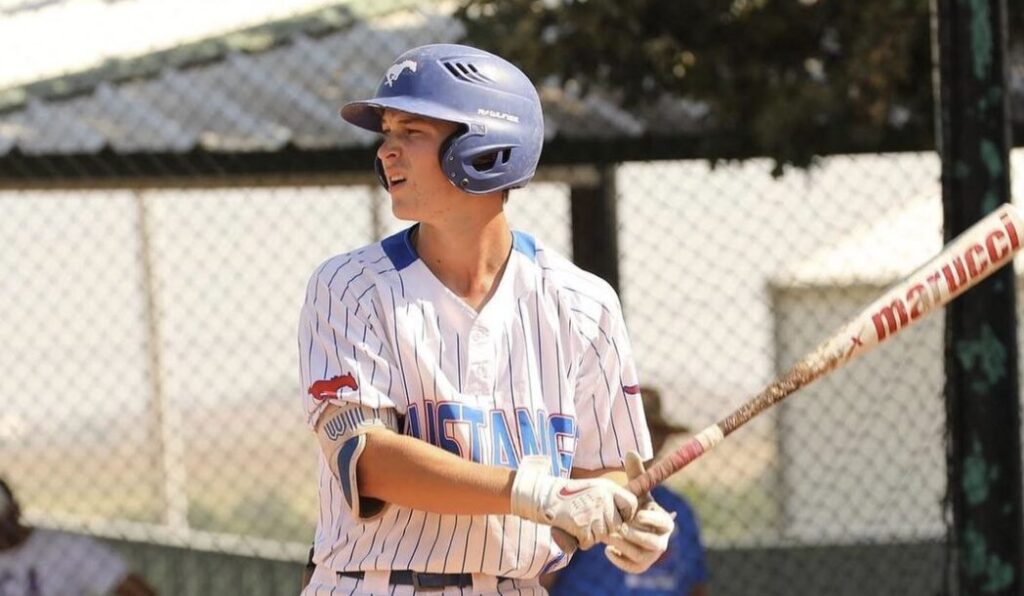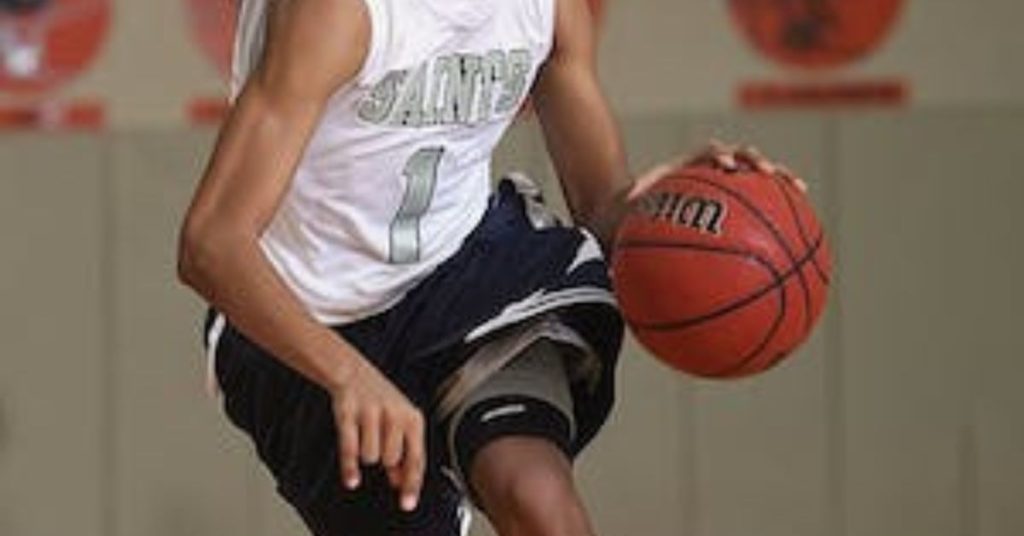MLB scouts look for players with standout skills, such as strong pitching, batting, and fielding abilities. They also assess a prospect’s physical attributes, mental makeup, and potential for growth.
As the hunt for baseball’s next superstar intensifies, scouts play a crucial role in shaping team rosters. Their keen eyes evaluate a myriad of player attributes, from arm strength and speed to agility and hand-eye coordination. Scouts must gauge not only a player’s current talent but also project their long-term contribution to a team.
Character traits such as work ethic, competitiveness, and coachability are equally weighed during their evaluations. Each prospect represents a possible investment in the future success of an MLB franchise, making the role of the scout both influential and indispensable in the world of professional baseball.
Eyeing Future Stars
Baseball scouts have a keen eye for talent. They travel far and wide. Their goal: find the next big star. Imagine someone who can pitch perfectly. Or hit home runs consistently. That’s their mission. It’s exciting and challenging. Scouts play a big part in a team’s future success.
The Role Of Scouts In Baseball
Scouts are the unsung heroes of baseball. They watch games tirelessly. They look for those with amazing skills. It’s not just about today. They think about the team years ahead. They find players who can shape the future of a club.
Identifying High-potential Players
What makes a player stand out? Scouts look for many things:
- Physical abilities. Speed, strength, and agility matter a lot.
- Technical skills. Pitching, hitting, and fielding are key.
- Baseball IQ. Understanding the game is crucial.
- Mental toughness. Can they handle pressure?
- Work ethic. Hard work beats talent when talent doesn’t work hard.
They use advanced tools too. Radar guns measure pitch speed. Video analysis helps break down mechanics. All to find players who can excel at the highest level.

Credit: futurestarsseries.com
Physical Attributes
Scouts in Major League Baseball (MLB) keep a keen eye on players’ physical attributes. These attributes often hint at a player’s potential on the field. For aspiring pros, knowing what scouts search for can be a game-changer.
Essential Measurements And Physique
Scouts measure a player’s height, weight, and wingspan. These dimensions can influence a player’s reach and power. Here’s what’s typically sought after:
- Pitchers: Tall with long arms.
- Hitters: Solid build for home run potential.
- Fielders: Lean for agility.
Scouts also assess a player’s physique for overall balance and proportion. This can help predict longevity and injury resilience. Solid muscle composition and minimal excess fat are preferred for peak performance.
Athleticism And Body Mechanics
Baseball scouts scrutinize a player’s athleticism closely. They observe how a player moves and reacts during play. Key components include:
| Attribute | Importance |
|---|---|
| Speed | Base stealing and field coverage |
| Arm strength | Throwing accuracy and velocity |
| Flexibility | Prevention of injuries |
| Endurance | Sustaining energy through games |
They also look for strong body mechanics in a player’s movements. This includes the ability to transfer energy efficiently throughout the body during play. Proper mechanics are critical for both performance and injury avoidance.
Skill Level Assessment
When Major League Baseball (MLB) scouts assess potential talent, their primary focus is on skill level. This critical evaluation paints a picture of a player’s current abilities and future potential. Knowing what scouts look for can empower players to sharpen the right skills. Let’s dive into the specifics of skill level assessment.
Technical Proficiency
Scouts meticulously evaluate a player’s technical proficiency. This includes fundamentals like batting mechanics, pitching form, and fielding techniques. For hitters, quick bat speed and solid contact ability stand out. Pitchers must show consistent accuracy and a variety of pitches in their arsenal. Fielders are judged on precise footwork and reliable glove skills.
Adaptability On The Field
Adaptability reflects a player’s capability to handle diverse situations on the field. Scouts seek those who can adjust to different pitches and overcome in-game challenges. This includes reading the game, predicting plays, and altering strategies.
- Adapt to game pace: Quick decision-making is crucial.
- Strategic thinking: Players must anticipate and react.
- Overcome adversity: Mental toughness is a must-have skill.
Mental Makeup
Scouts in Major League Baseball (MLB) don’t just look for physical talent. Mental Makeup is crucial too. It’s how players handle the pressure. It’s their on-field smarts. Players with strong mental skills stand out.
Baseball Iq And Game Sense
Baseball IQ is a player’s ability to understand the game deeply. Scouts spot this by watching how a player reacts during different situations. Game Sense involves strategic decisions like base running or field positioning. Players with high Baseball IQ are often one step ahead.
- Smart decision-making on the field
- Anticipating plays before they happen
- Understanding the strengths and weaknesses of opponents
Psychological Stamina
A long season tests a player’s Psychological Stamina. Scouts want players who can cope with stress and bounce back from failure. Those who can maintain focus and confidence through a 162-game season show true resilience.
- Consistent performance under pressure
- Recovery from mistakes with composure
- Positive attitude during slumps
Power And Speed
In the electrifying world of baseball, scouts keep a keen eye on two thrilling attributes: power and speed. These abilities can turn a game around. Let’s delve into what makes these qualities stand out to Major League Baseball (MLB) scouts.
Hitting Strength
Scouts hunt for players who can hit the ball hard and far. A player’s hitting strength is vital. This means watching how the ball rockets off the bat. Scouts use a term, “exit velocity,” to measure this. Higher exit velocity often equals more home runs. They also look at a player’s bat speed and how well they adjust to different pitches.
| Aspect | Importance |
|---|---|
| Exit Velocity | Indicates power |
| Bat Speed | Showcases swing agility |
| Pitch Adjustment | Reflects versatility |
Sprinting And Stealing Bases
Speed changes games. Fast players can steal bases, beat out infield hits, and chase down fly balls. Scouts look at a player’s sprinting ability from home to first. They time how quickly a player can cover the bases.
- Stolen bases: Indicate base-running instincts.
- Home-to-first time: Shows pure speed.
- Defensive range: Reflects speed on the field.
Sprinting isn’t just about raw speed; it’s also about quick reactions and smart decisions. A player’s agility and how they read a pitcher can lead to a successful steal.
The Arm Factor
When scouting potential MLB stars, the arm factor stands out as a crucial element. It’s about the power and finesse a player demonstrates while pitching or throwing. Scouts focus on this indicator to predict success on the mound or in the field.
Evaluating Pitching Talent
Identifying a standout pitcher starts with assessing several arm-related skills. Scouts measure fastball velocity, noting pitchers who consistently throw fast. They also watch for arm endurance—the ability to maintain speed throughout the game. A diverse pitch arsenal is key. Scouts seek players who can throw a mix of pitches with skill.
- Fastball Velocity: High speeds grab scouts’ attention.
- Stamina: Sustaining velocity is equally important.
- Pitch Variety: A mix of pitches can keep batters guessing.
Throwing Precision And Strength
While evaluating the arm, scouts also prioritize accuracy and strength. Infielders and outfielders must show they can make strong, precise throws to bases. Scouts assess throwing mechanics, arm angles, and quickness of release. These qualities indicate a player’s potential to prevent runs and control the game.
| Quality | Importance |
|---|---|
| Accuracy | Essential for successful plays |
| Strength | Stops runners advancing |
| Release Time | Quick throws can outpace runners |
Defensive Capabilities
Baseball is more than just a bat and ball game – a tight defense plays a crucial role in leading a team to victory. Scouts keep a close eye on a player’s defensive talents, realizing that these skills at times become the deciding factor in tight games. Let’s delve into the specifics that separate the good from the great on the field.
Fielding Skills
Fielders with top-notch skills make or break the game. Scouts seek those who show prowess in these areas:
- Soft hands – ability to catch the ball gently to prevent errors.
- Footwork – quick and proper positioning to make plays.
- Arm strength – powerful throws to nab speedy runners.
- Accuracy – precision in throwing to the intended target.
Scouts use these benchmarks to predict how a player might perform in high-pressure scenarios.
Reaction Times And Decision Making
Scouts also gauge a player’s mental agility on the field.
- Quick thinking – how fast a player reads the ball off the bat.
- Split-second decisions – choosing the best play in a flash.
- Adaptability – changing tactics with varying game situations.
These elements are critical, as they often determine the outcome of a play.
Scouts value players who consistently show superior defensive capabilities. Such athletes are the backbone of any formidable baseball team. Players aiming for the big league should refine these skills to catch a scout’s eye.

Credit: www.wsj.com
Performance Under Pressure
The crunch moments in baseball can make or break a player’s career. Scouts deeply analyze how a player handles pressure. This could determine a Major League player’s future. It’s not just about skill—it’s about mental strength, focus, and resilience. High-performance under pressure is a must.
Coping With High-stakes Games
Pressure fills high-stakes games. Scouts seek players who remain calm. These players must think clearly. They must react effectively. The ability to stay composed when stakes are high is essential. This trait is a top indicator of potential success.
- Heart rate control
- Focus maintenance
Consistency In Various Scenarios
Performance consistency is key across different situations. Whether it’s a home game or away, under bad weather or perfect conditions.
| Scenario | Expectation |
|---|---|
| Adverse conditions | Maintain performance |
| Challenging opponents | Showcase skill and composure |
| High-pressure innings | Deliver results consistently |
Five-tool Players
In the high-stakes world of Major League Baseball scouting, “Five-Tool Players” are akin to unicorns—rare and captivating. These exceptional athletes demonstrate top-tier skills in hitting, hitting for power, running, throwing, and fielding. The quest to discover such players is relentless. These standouts are prized for their ability to excel in every facet of the game. In this discussion, let’s delve into why these players are the quintessential scout’s dream and the impact they have on the field.
The Quintessential Scout’s Dream
Scouts scour the baseball landscape for players who embody the essence of versatility and talent. A Five-Tool Player is the ultimate prize. This player not only excels in each of the five key areas of the sport but also possesses the ability to make a substantial impact in every game.
- Hitting: A keen eye for contact and the ability to consistently reach base.
- Hitting for Power: The swing that sends balls over the fence.
- Running: Speed to steal bases and pressure the defense.
- Throwing: A laser arm that holds runners and nabs outs.
- Fielding: The agility and instincts to prevent hits.
Rarity And Impact Of Five-tool Talent
Finding a Five-Tool Player is rare. These athletes are a franchise’s dream—able to change the course of a game with their myriad of skills. Their impact on a team is immediate and profound: offense and defense both shine brighter. The table below encapsulates why this talent is a game-changer.
| Tool | Impact on the Game |
|---|---|
| Hitting | Keeps innings alive and defenses on their toes. |
| Hitting for Power | Can change the score with a single swing. |
| Running | Creates scoring opportunities from thin air. |
| Throwing | Deters aggressive baserunning with strong throws. |
| Fielding | Prevents runs and maintains leads. |
The rarity of such talent means scouts must be diligent and discerning. Teams covet these players for their potential to enhance every game. Their presence in a lineup, and on the field, is magnetic and game-altering.

Credit: twitter.com
Beyond The Field
When MLB scouts evaluate talent, they look beyond the field. Skills matter, but so do work ethic, trainability, character, and how a player fits into team dynamics. These attributes can turn a good player into a great one.
Work Ethic And Trainability
Scouts notice players who work hard every day. Extra batting practice or additional fielding drills show dedication. The way a player approaches training suggests how much they can improve. Simply put, a strong work ethic can mean a brighter future in baseball.
- Consistent practice – Shows commitment to improvement
- Receptiveness to coaching – Indicates a willingness to learn and adapt
- Mental toughness – Allows a player to bounce back from failure
Character And Team Dynamics
Athletes with strong character traits bring more to the team. Scouts seek players who show respect, integrity, and accountability. These players often become team leaders.
| Quality | Impact on Team |
|---|---|
| Leadership | Guides team through challenges |
| Positive Attitude | Lifts team’s spirit during tough times |
| Communication | Keeps everyone on the same page |
Team dynamics also play a crucial role. Players must mesh with the team’s culture. This harmony is key to a winning squad.
Frequently Asked Questions For What Do Mlb Scouts Look For
What Do Mlb Scouts Look For In Baseball Players?
MLB scouts typically seek players with strong fundamentals, impressive athleticism, consistent performance, and solid baseball instincts. They evaluate hitting power, pitching velocity, defensive skills, speed, and mental toughness. Character and work ethic are also crucial factors.
How Do You Get Mlb Scouts Attention?
Perform consistently at high school or collegiate games, attend showcase events, maintain strong statistics, and exhibit a good attitude and teamwork. Networking with coaches and using video highlights can also draw MLB scouts’ attention.
What Do You Need To Be A Mlb Scout?
To become an MLB scout, you need a deep understanding of baseball, scouting experience, strong networking skills, and the ability to evaluate talent. Often, a relevant degree and playing experience are beneficial.
How Do You Get A Baseball Scout To Look At You?
To attract baseball scouts, excel in high school or club team performances, attend showcase events, and maintain strong statistics. Engage on social media and contact scouts or college coaches directly with highlight reels and athletic resumes. Network with coaches for recommendations.
What Skills Do Mlb Scouts Evaluate?
Scouts in Major League Baseball (MLB) evaluate players’ fundamental skills, including hitting, power, running speed, arm strength, fielding ability, and overall athleticism.
Conclusion
Scouts in Major League Baseball prioritize talent, dedication, and potential. Their keen eyes dissect each player’s skill set, seeking future all-stars. Aspiring athletes should consistently work on their abilities and game sense. Remember, making it to the MLB demands more than raw talent; it’s about the right mix of skills and mindset.
Keep striving for excellence, and maybe one day, you’ll catch a scout’s eye.


